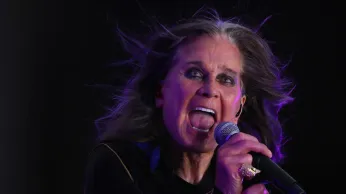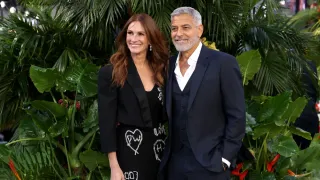
9 hours ago
A Life Well-Lived - Heavy Metal Icon Ozzy Osbourne Dies at 76
READ TIME: 3 MIN.
Ozzy Osbourne, the legendary “Prince of Darkness” who helped invent and popularize heavy metal as the lead singer of Black Sabbath and as a solo artist, has died at the age of 76. Osbourne’s death was confirmed by his family, who shared that he passed away “surrounded by love” just weeks after his much-celebrated farewell show in Birmingham, England. The concert, featuring performances by Metallica, Guns N’ Roses, and a reunion with his Black Sabbath bandmates, marked a poignant closing chapter in a career that spanned more than five decades .
Osbourne’s influence on music and popular culture is profound. Rising from working-class roots in Birmingham, he became the frontman of Black Sabbath in the late 1960s. The band’s heavy, doom-laden sound helped define the genre and inspired generations of musicians. Osbourne’s onstage antics, ranging from biting the head off a bat to his outlandish costumes, cemented his reputation as a rule-breaker and a performer unafraid to court controversy .
His solo career was equally impactful, with hits like “Crazy Train,” “Mr. Crowley,” and “No More Tears” becoming anthems for outsiders and rebels alike. Osbourne’s willingness to embrace the bizarre and the taboo made him a symbol for anyone who felt marginalized or misunderstood.
Osbourne’s reach extended well beyond music. In the early 2000s, he and his family became reality TV pioneers with “The Osbournes” on MTV. The series offered an unvarnished look at family life, mental health struggles, and substance use—topics that resonated with viewers of all backgrounds and identities. His openness about his challenges—and the support he received from his family—helped destigmatize discussions about mental health and addiction in the entertainment industry .
While Osbourne did not publicly identify as LGBTQ+, his status as an outsider and iconoclast made him a touchstone for many in the LGBTQ+ community. Metal and alternative music scenes have long provided safe spaces for those who feel excluded from mainstream society, and Osbourne’s embrace of individuality and creative freedom resonated with LGBTQ+ fans around the world.
His concerts and music videos often featured flamboyant costumes and theatricality, breaking down traditional expectations of masculinity and performance. In interviews, Osbourne spoke candidly about his struggles with identity, depression, and self-acceptance—experiences that mirror those of many LGBTQ+ individuals .
Fans and advocates have noted Osbourne’s role in opening up dialogues about being true to oneself and challenging societal norms. His willingness to be “weird” and unapologetically himself paved the way for greater acceptance of diversity in music and beyond.
Tributes have poured in from across the globe, with musicians, celebrities, and fans sharing memories of Osbourne’s impact. Many LGBTQ+ fans and organizations have highlighted his importance as a symbol of resilience and self-expression. “Ozzy taught us that it’s okay to be different—that you can find your tribe and thrive,” said one statement from a UK-based LGBTQ+ metal fan group .
Osbourne’s legacy is also reflected in his longstanding support for charitable causes, including mental health awareness and addiction recovery—issues that disproportionately affect LGBTQ+ people.
As the world mourns the loss of a music legend, Osbourne’s refusal to conform and his advocacy for individuality will continue to inspire generations. For LGBTQ+ fans and allies, his life stands as a reminder that embracing one’s authentic self—no matter how unconventional—can change the world.






